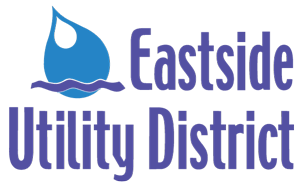History
Eastside Utility District, formerly the East Brainerd Water Company, was chartered in 1958 under the Tennessee Utility District Act of 1937. The District originally served customers in unincorporated areas of Chattanooga and Hamilton County. Over the years, the District has undergone several voluntary adjustments to accommodate annexation by the City of Chattanooga, expanding outward as city growth pushed District boundaries further into Hamilton County.
On January 13, 2000, an order was signed to re-create Eastside Utility as a multi-county utility district, authorizing service to a portion of Bradley County. With a service area of about 70 square miles, Eastside Utility draws from the Chickamauga Lake reservoir and interconnects with adjacent water utilities.
Service Area
Eastside Utility District provides water to 26,000+ customers in Bradley and Hamilton counties and supplies water through wholesale meters to consumers in Catoosa and Whitfield counties. Wholesale customers include Savannah Valley Utility District, Ocoee Utility District, Cleveland Utilities, Tennessee American Water, Catoosa County Water Authority, and Dalton Utilities. The service area includes the Enterprise South Industrial Park, a driver of regional growth and development.
Treatment Facilities and Source of Supply
Source of Supply
When Eastside Utility was chartered in 1958, it developed a series of wells on Short Tail Springs Road known as Carson Springs. This was the primary source of supply until the current treatment plant was acquired.
Treatment Plant — General Information
The water treatment plant sits on a 125-acre tract at the intersection of Claude Ramsey Parkway and State Route 58. Raw water is taken from the Tennessee River at the Chickamauga Reservoir and pumped about 1⅔ miles east to the plant. Water then flows by gravity through treatment and is subsequently pumped into the distribution system.
Treatment Process
Raw water passes through chambers, grates, and screens to remove large debris and is pumped through a 48-inch steel main to the raw-water reservoir at the plant. It then flows by gravity at controlled rates to flocculation chambers where coagulants and flocculators help particulates aggregate and settle.
Water continues through the sedimentation basin and tube settlers, then to mixed-media filters for final filtration, including activated carbon. Finally, disinfectant (chlorine), fluoride, and a corrosion inhibitor are added before the finished water is stored in clearwells for pumping to customers. The full process typically takes 10 to 12 hours.
Board of Commissioners
The Board consists of three members: two from Hamilton County and one from Bradley County. Members are appointed by the appropriate county mayor for three-year terms and may serve multiple terms. The Board establishes policies, approves and reviews budgets, sets rates, and rules on customer complaints that reach the Board level.
Board Meetings
The Board meets on the second Tuesday of each month at at 3018 Claude Ramsey Parkway, adjacent to the Hamilton County School Board. Meetings are open to the public. Anyone may address the Board if placed on the agenda in advance. To be added to the agenda, contact the General Manager at least seven days before the meeting.
Regulatory Oversight
- USEPA — Sets federal water quality and environmental compliance standards.
- TDEC — Enforces federal and state water quality standards; conducts audits, inspections, certifications; trains and certifies operators.
- State of Tennessee Comptroller’s Office — Establishes and enforces financial performance criteria and standards.
- State of Tennessee Department of Revenue (Tax Enforcement) — Oversees and audits sales tax collection and reporting.
- LEPC and Tennessee Department of Safety & Homeland Security — Oversee security, emergency planning, and response readiness.
Our Mission
To provide Safe, Reliable, and Cost-Effective water services to our customers while ensuring the protection of public health and the environment.

